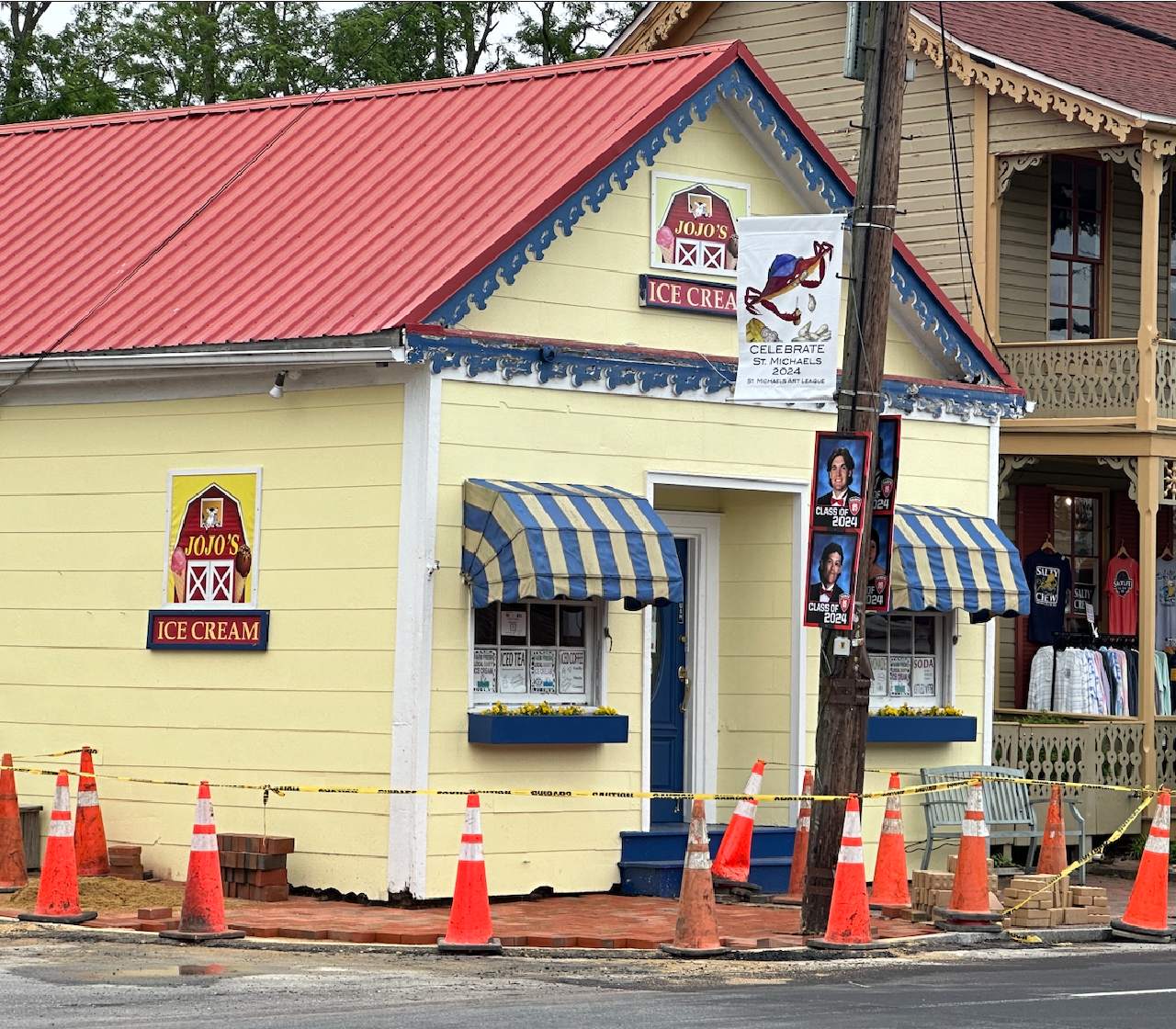Thomas Auld’s Store & Post Office
N/A

HISTORY
Thomas Auld kept a store on this corner and lived in the block behind it, toward the harbor. The site is now a bakery. Auld scrambled to make ends meet.
He rented the store and a contract to serve as postmaster helped maintain some year-round income. In 1833, Auld was married to his second wife, 22-year-old Rowena Hambleton, daughter of Bayside farmer William Hambleton. Rowena’s youth didn’t equip her to manage a household or act as stepmother to 12-year-old Amanda Auld, Douglass’s friend from their early childhood on the Lloyd plantation.
Rowena attempted to run her household through meanness and stinginess while Thomas Auld deployed the lash with an inconsistency that bred disrespect in his slaves. Hunger was ever-present Douglass wrote of “the brutalizing effects of slavery upon both slave and slaveholder”..
There were four slaves of us in the kitchen, and four whites in the great house — Thomas Auld, Mrs. Auld, Haddaway Auld, (brother of Thomas Auld,) and little Amanda. The names of the slaves in the kitchen, were Eliza, my sister; Priscilla, my aunt; Henny, my cousin; and myself. There were eight persons in the family. There was, each week, one half bushel of corn-meal brought from the mill; and in the kitchen, corn-meal was almost our exclusive food, for very little else was allowed us…This allowance was less than half the allowance of food on Lloyd’s plantation.
Douglass goes on to describe his strategy to find enough food: [He spelled Hambleton as Hamilton.]
One of my greatest faults, or offenses, was that of letting [Auld’s] horse get away, and go down to the farm belonging to his father-in-law. The animal had a liking for that farm, with which I fully sympathized. Whenever I let it out, it would go dashing down the road to Mr. Hamilton’s, as if going on a grand frolic. My horse gone, of course I must go after it. The explanation of our mutual attachment to the place is the same; the horse found there good pasturage, and I found there plenty of bread. Mr. Hamilton had his faults, but starving his slaves was not among them. He gave food, in abundance, and that, too, of an excellent quality. In Mr. Hamilton’s cook—Aunt Mary—I found a most generous and considerate friend. She never allowed me to go there without giving me bread enough to make good the deficiencies of a day or two.
— Frederick Douglass, My Bondage and My Freedom


